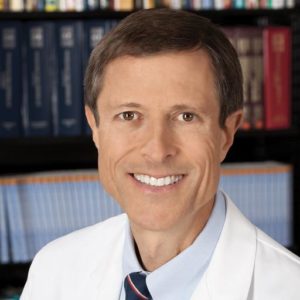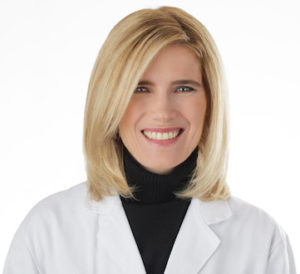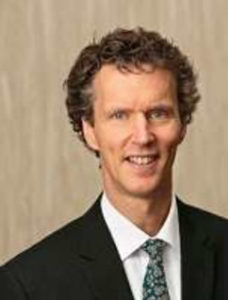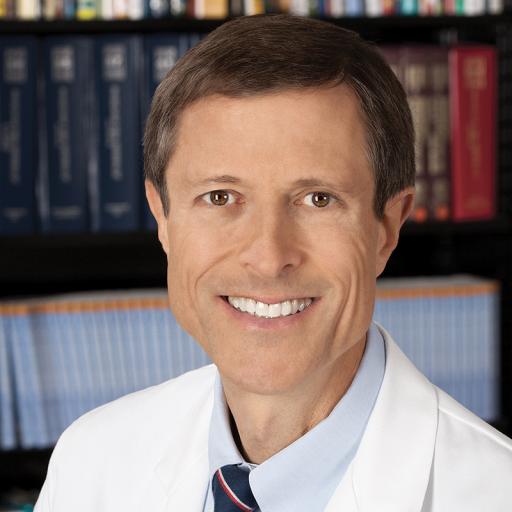“Nutrition knowledge is essential for today’s physicians,” according to a JAMA Internal Medicine commentary written by Neal Barnard, MD, president of the Physicians Committee for Responsible Medicine. In his column, Ignorance of Nutrition if No Longer Defensible, he makes the point that overweight, diabetes, heart disease, and many forms of cancer are driven by unhealthful diets. Yet, most doctors do not have the knowledge to turn this problem around. In a 2018 survey, 61 percent of internal medicine residents reported having little or no training in nutrition.
As Dr. Barnard says, this lack of knowledge is not defensible, especially when one considers the cost to quality of life, productivity and of course, human lifespan. A recent study from the Milken Institute estimates that the costs of diabetes, cardiovascular diseases, obesity-related cancers, and other obesity-related conditions in this country are approximately $1.72 trillion per year, or 9.3% of the gross domestic product (download the study here).
While the dangers of ignoring nutrition as a first-line of defense for lifestyle illnesses is not surprising to the integrative-medical community, Today’s Practitioner dug into the topic a little deeper for further commentary from Dr. Barnard, Robert Luby, MD, Executive Director of Medical Education for the Institute of Functional Medicine; and Kristine Gedroic, MD, author of a new book A Nation of Unwell: What’s Gone Wrong?
 In the commentary, Dr. Barnard recalls a patient who was hospitalized with a foot infection that was a complication of longstanding diabetes.
In the commentary, Dr. Barnard recalls a patient who was hospitalized with a foot infection that was a complication of longstanding diabetes.
“Although the roots of type 2 diabetes are in the everyday food choices that lead to obesity and insulin resistance, we were ready to amputate, but never started a discussion about improving her diet,” writes Dr. Barnard.
Study-after-study, many of them written about here on this website, show that today’s chronic lifestyle diseases cannot be reversed with drugs. “We need a food first approach,” says Dr. Luby. “We have surpassed the acute era of medicine—food has to be the first intervention.”
Barnard writes that while 94 percent of resident physicians recognize the importance of diet and feel that nutrition counseling should be part of patient visits, only 14 percent feel trained to offer it. Why are experienced physicians and newly training doctors and health professionals are not getting trained in nutrition?
“Nutrition is sometimes perceived as a soft science,” says Dr. Barnard. “Many have the attitude; I didn’t become a surgeon to become Betty Crocker. This type of medicine means their role is shifting into something much different than how they see themselves playing out,” he says.
Nor he says, do they see how powerful nutrition can be to a patient’s health because they lack the training to implement a whole-person nutrition plan. Much of this comes from a distinct lack of understanding. Dr. Barnard recalls, for instance, in the 1980’s a heart disease patient might be told by their doctor to switch to skinless chicken and skip red meat. Only to find out it didn’t work. “Then the physician asks: Why did I do this? I can prescribe statins, which will knock down the LDL right away,” says Dr. Barnard.
Barnard warns that in reality physicians are only making their jobs much harder and riskier by not knowing anything about diet and nutrition. “Every day we see a new patient with Type-2 diabetes who has had very little nutritional intervention,” he says.
“Their doctors are having a really rough time addressing all the health conditions that come with it, such as kidney disease, neuropathy and cardiovascular disease. If they had started with diet at the beginning, the patient and the doctors would have a safer and easier time with treatment,” Dr. Barnard says.
 Dr. Gedroic says she first became aware of how convoluted the system was during her own cardiology rotation during her residency with some of the world’s top cardiologists. “It was the third patient of the day who needed a prescription for Lipitor,” she recalls. “No one asked about what the patient was eating.” She asked the cardiologist (after leaving the patient’s room): “What is the rule about asking what they are eating?” Answer (with a laugh): “There is no rule. They are not going to stop eating Dunkin Donuts, so I give them prescriptions.”
Dr. Gedroic says she first became aware of how convoluted the system was during her own cardiology rotation during her residency with some of the world’s top cardiologists. “It was the third patient of the day who needed a prescription for Lipitor,” she recalls. “No one asked about what the patient was eating.” She asked the cardiologist (after leaving the patient’s room): “What is the rule about asking what they are eating?” Answer (with a laugh): “There is no rule. They are not going to stop eating Dunkin Donuts, so I give them prescriptions.”
Dr. Barnard’s own father, who was an internist in South Dakota, never once heard evidence that his patients’ diabetes would ever go away. Today there is more than enough evidence, especially in a day and age when millennials, perhaps the most knowledgeable generation of foodies, are completing medical school. “Medical schools are getting better, but not nearly to the degree they need to be,” says Dr. Luby. Most chock this up to the medical faculty’s lack of desire to teach the subject. And, for already licensed and practicing physicians, adding new training can be difficult. “It’s pretty daunting when you are already overworked and want to spend time with family,” Luby says.
 What is the motivator for physicians to learn about a food-first approach? Frustration. “The thought of continuing treatments that are not working is very compelling,” says Luby. “This is why people come to us,” he says. It’s also why IFM has a free introductory online course in functional medicine to jump start the interest and knowledge. He says a majority of medical professionals who train with IFM are medical doctors, osteopaths and nurse practitioners, the latter being the fastest growing sector.
What is the motivator for physicians to learn about a food-first approach? Frustration. “The thought of continuing treatments that are not working is very compelling,” says Luby. “This is why people come to us,” he says. It’s also why IFM has a free introductory online course in functional medicine to jump start the interest and knowledge. He says a majority of medical professionals who train with IFM are medical doctors, osteopaths and nurse practitioners, the latter being the fastest growing sector.
Dr. Barnard says at the clinical level, for this to gain widespread use, practices much adopt a team approach by bringing in multi-modalities like nurse practitioners and registered dieticians. “The physician doesn’t actually have to do a nutritionist’s role,” Barnard says. The physician is simply the first person to identify and validate the problem, they then hand the patient over to trained staff to implement a food-first treatment plan, he explains.
Sadly, for many physicians who ignore the obvious, their own health may eventually suffer. This in  itself can be the straw for change. Dr. Gedroic says her motivation to change the way she practices medicine was her own health. Stress, poor diet, migraines and a bad combination of medications put her in the ICU. She learned about integrative medicine through her own healing. “My own journey humbled me to learn about it,” she says. She is sharing that knowledge in her new book, A Nation of Unwell: What’s Gone Wrong?, which discusses the role of the gut (gut metabolism), the microbiome and how the gut interacts with the immune system, metabolism and mental health. “It’s an exciting time to practice medicine with so much new information coming out,” she says. “Even 10 years ago these concepts, such as gut disbiosis, used to be on the fringe.”
itself can be the straw for change. Dr. Gedroic says her motivation to change the way she practices medicine was her own health. Stress, poor diet, migraines and a bad combination of medications put her in the ICU. She learned about integrative medicine through her own healing. “My own journey humbled me to learn about it,” she says. She is sharing that knowledge in her new book, A Nation of Unwell: What’s Gone Wrong?, which discusses the role of the gut (gut metabolism), the microbiome and how the gut interacts with the immune system, metabolism and mental health. “It’s an exciting time to practice medicine with so much new information coming out,” she says. “Even 10 years ago these concepts, such as gut disbiosis, used to be on the fringe.”
If we are to see lasting change in the health of our country, nutrition education may have to be mandatory. “Physicians are quick to learn about medications, but when it comes to nutrition, they are somehow excused,” says Dr. Barnard. It’s time that changed. Legislators throughout the U.S. are also calling for nutrition education for physicians. Last month, Washington, D.C., Council member Mary Cheh introduced a bill recommending continuing education on nutrition for physicians, nurses, and physician assistants. In New York, lawmakers have introduced similar legislation: A7695/S5887.
The last bastion of support for adding nutrition-centric care is insurance. A recent article, Food Is Medicine—The Promise and Challenges of Integrating Food and Nutrition Into Health Care, also in JAMA Internal Medicine, writes “for full scale implementation and effect, such interventions will need to be integrated into large private and public insurance programs.” The article cites various successful programs such as the Geisinger Health in Pennsylvania, which launched the Fresh Food Pharmacy. Primary care physicians prescribe to patients with diabetes 10 weekly meals of fresh, healthy food. The initial findings showed that the average hemoglobin A1c levels dropped from 9.6% to 7.5% at 1 year. Insurance company John Hancock announced in 2018 that it was implementing John Hancock Vitality, which provides financial incentives and other rewards for following a healthier lifestyle, which included up to $600 per year for purchasing healthier food.
The article authors conclude that for these types of programs to be successful the entire system needs to get behind nutrition protocols and policy changes. “This intervention should include more questions on nutrition, lifestyle, and behavior change on medical licensing examinations and specialty certifications to spur systematic changes in medical education and training, incorporation of nutrition and food security screening tools into electronic health record standards, and changes to procurement standards for hospital cafeterias and patient food services,” they write.
Barnard agrees and recommends these five steps the medical community can take to address this lack of knowledge about nutrition:
- Nutrition should be a required part of continuing medical education for physicians everywhere;
- Doctors should work with registered dietitians;
- Electronic medical record services should include customizable nutrition questions and handouts;
- Doctors are role models and should embrace that fact by modeling healthy eating habits;
- The medical community should support healthier food environments, including in hospitals and schools.
Source: Barnard ND. Ignorance of Nutrition Is No Longer Defensible. JAMA Intern Med. Published online July 01, 2019. doi:10.1001/jamainternmed.2019.2273
Read Commentary Here from Lisa C. Andrews, MEd, RD, LD
Neal Barnard, MD, FACC, is an Adjunct Associate Professor of Medicine at the George Washington University School of Medicine in Washington, DC, and President of the Physicians Committee for Responsible Medicine. Dr. Barnard has led numerous research studies investigating the effects of diet on diabetes, body weight, and chronic pain, including a groundbreaking study of dietary interventions in type 2 diabetes, funded by the National Institutes of Health, that paved the way for viewing type 2 diabetes as a potentially reversible condition for many patients. Dr. Barnard has authored more than 90 scientific publications and 20 books for medical and lay readers and is the editor in chief of the Nutrition Guide for Clinicians, a textbook made available to all U.S. medical students.
As president of the Physicians Committee, Dr. Barnard leads programs advocating for preventive medicine, good nutrition, and higher ethical standards in research. His research contributed to the acceptance of plant-based diets in the Dietary Guidelines for Americans. In 2015, he was named a Fellow of the American College of Cardiology. In 2016, he founded the Barnard Medical Center in Washington, DC, as a model for making nutrition a routine part of all medical care.
Working with the Medical Society of the District of Columbia and the American Medical Association, Dr. Barnard has authored key resolutions, now part of AMA policy, calling for a new focus on prevention and nutrition in federal policies and in medical practice. In 2018, he received the Medical Society of the District of Columbia’s Distinguished Service Award. He has hosted four PBS television programs on nutrition and health. Follow Dr. Barnard on Twitter @DrNealBarnard and Facebook @NealBarnardMD.
Robert Luby, MD is the Executive Director of Medical Education for the Institute of Functional Medicine. Prior to joining IFM in 2015, Dr. Luby spent 26 years as a board-certified family physician providing primary care in Latino community health centers, successfully applying the Functional Medicine model in these under-resourced settings. After also spending 16 of those years in academic medicine honing his skills in curriculum development and faculty training, he has taken over the reins of IFM’s Medical Education Department. Past teaching affiliations include Harvard, UMass, Tufts, Boston U, and the University of Vermont medical schools. Dr. Luby holds a bachelor’s degree in Biology from Dartmouth and received his MD degree from Columbia University College of Physicians and Surgeons. He was board certified in holistic medicine in 2002, and in 2013 joined the first class of IFM Certified Practitioners.
Kristine Gedroic, M.D. is the director of The Gedroic Medical Institute in Morristown, NJ. She is a Fellow of the American Board of Family Medicine and Integrative Medicine and is Clinical Associate Professor in the Department of Medicine at Rutgers University Medical School. Dr. Gedroic has developed a precise, evidence-based approach to managing complex, chronic illness. Through advanced biochemical testing and research, she and her team develop a personalized treatment program tailored to patient’s needs. With a true understanding of epigenetics, along with the microbiome, Dr. Gedroic and The Gedroic Medical Institute has been able to predictably help patients recover from complex, chronic illness. The model, which has taken over a decade to develop, is backed by science, research and many years of compassionate care. The Gedroic Medical Institute builds and nurtures a close partnership with each patient and work to restore the patient’s physical, mental, emotional, and spiritual health so that ultimately, the patient graduates from care. Click here for more on A Nation of Unwell: What’s Gone Wrong?





